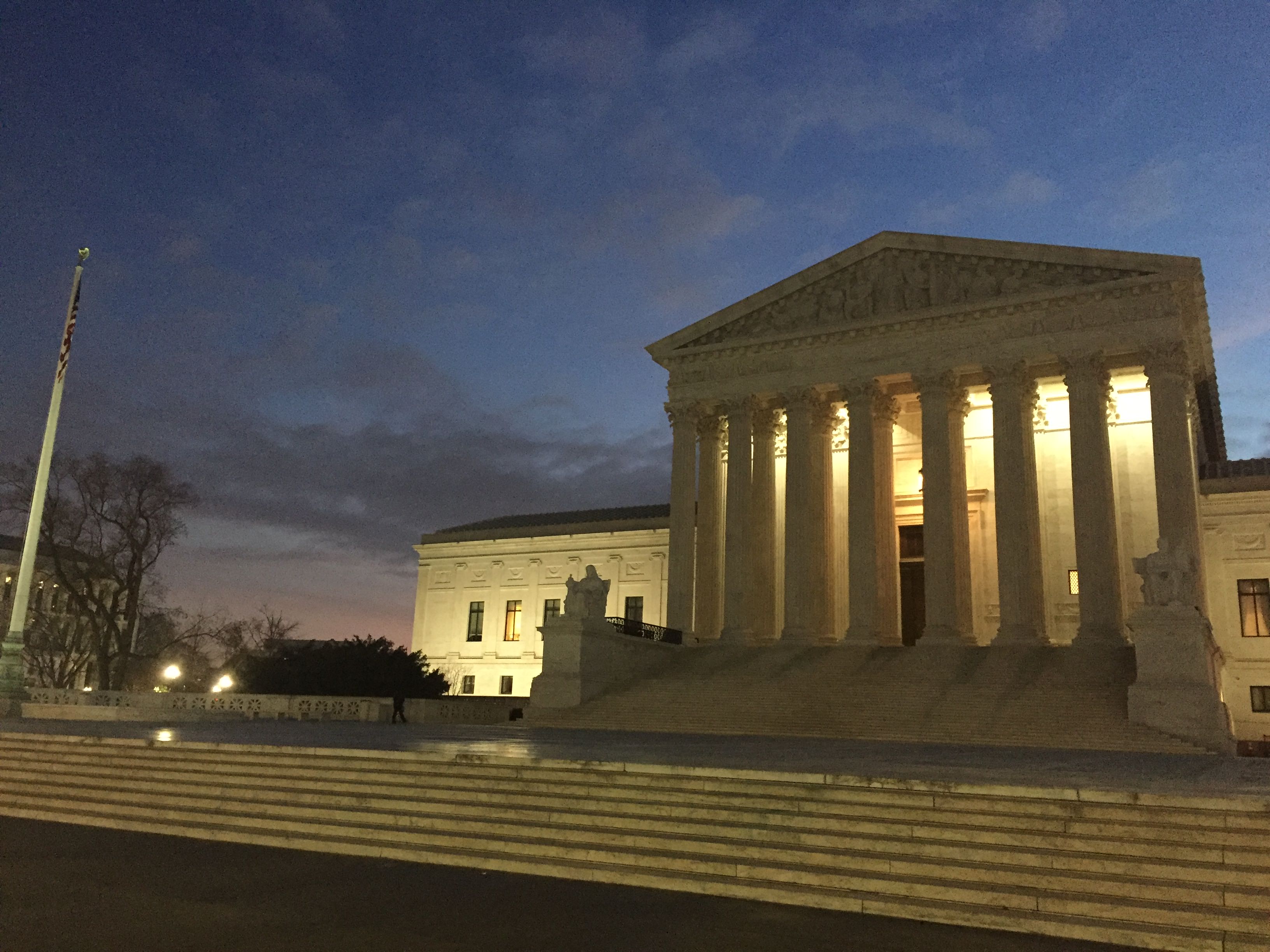January 12, 2018
U.S. Supreme Court Should Affirm a Defendant’s Right to Decide Whether to Admit Guilt
George W. and Sadella D. Crawford Visiting Lecturer in Law, Yale Law School

“I’ve just told you he’s guilty.”
Still ringing through the courtroom as the last day of Robert McCoy’s trial for murder came to a close, were the stinging words, “I’ve just told you he’s guilty.” If those words had been uttered by the prosecutor, the world would have taken little note. But they were the words of Mr. McCoy’s lawyer made over his client’s express objection and protestation of innocence. They represented the ultimate act of client betrayal made by the constitutionally guaranteed defender of Mr. McCoy’s rights, his one true champion, the only participant in the criminal justice system who was constitutionally required to fulfill Mr. McCoy’s wishes so long as the client was competent and they involved no illegal conduct. On January 17, these words will be at the center of discussion at the U.S. Supreme Court, when it hears this extraordinary case, McCoy v. Louisiana.
Mr. McCoy’s instructions to his lawyer could not have been clearer. Facing a murder trial in which the State of Louisiana sought death by lethal injection, Mr. McCoy never wavered in refusing to admit guilt, asserting his innocence, and resolutely seeking a “not guilty” verdict from a jury of his peers.
Yet, ignoring the opposition of his client and trampling the constitutionally-defined right of the client to make the choice, Mr. McCoy’s lawyer told the jury that Mr. McCoy was guilty of the crime. And to make certain the message was not lost on his audience, the defense lawyer “took credit” for relieving the prosecution of its burden of proving that his client was guilty.
The Sixth Amendment right to counsel, the Rules of Professional Conduct and the common law of agency all identify the bedrock principle at issue in this case. Once Mr. McCoy decided to maintain his innocence and hold the prosecution to its burden of proof, his lawyer had only one obligation: to respect his client’s decision regarding that paramount objective and seek an acquittal.
Two weeks before trial, Mr. McCoy’s lawyer had informed him that he planned to tell the jury that Mr. McCoy killed the victims. As the lawyer acknowledged, Mr. McCoy was completely opposed to any such admission. As a friend-of-the-court brief filed by experts in legal ethics explains, there can be no justification for the lawyer’s decision to override his client’s express wishes.
The Supreme Court has repeatedly recognized “the fundamental legal principle that a defendant must be allowed to make his own choices about the proper way to protect his own liberty.” Once Mr. McCoy made his decision to plead not guilty and hold the prosecution to its burden of proof, his lawyer was bound by the Sixth Amendment, the common law of agency, and the professional disciplinary rules to follow his client’s instructions.
The lawyer concluded there was real strategic value in conceding guilt and that the only likely consequence of a contrary decision was certain conviction and a death sentence. But, unless the client had been found incompetent to stand trial, neither of these considerations allowed the lawyer to overrule the client’s self-chosen objective.
On appeal, the Louisiana Supreme Court rejected that position. How did the Louisiana Supreme Court manage to go so wrong when the principle of client autonomy in such a situation is so clear? For one thing, the Louisiana Supreme Court erred when it relied on Florida v. Nixon (2004), a U.S. Supreme Court case that addresses an attorney’s authority to admit guilt when the defendant does not object – clearly not the case with Mr. McCoy. Additionally, the Louisiana Supreme Court confused the principle that the defendant is entitled, as a matter of constitutional law, to force the prosecution to carry its burden of proof on each element of the case with the rule that forbids a lawyer from putting on a witness the lawyer knows will commit perjury.
Denying guilt, in and of itself, can never be fraudulent, perjurious, or criminal. To the contrary, the right to plead not guilty and require the prosecution to prove every element of its case, beyond a reasonable doubt, is among the most basic rights guaranteed by the Constitution.
Nor did Mr. McCoy waive that right when he accepted the assistance of counsel. Under the principles of agency law, a lawyer is an assistant – an educated and well-trained assistant – but an assistant nevertheless. The client remains the master, defining the objectives of his own defense. The principle of client control defines all lawyer client relationships, whether the issue is collecting damages for a fender bender or defending a capital charge.
A foundational principle of human autonomy is at stake in this case. The Supreme Court should reverse, ensuring Mr. McCoy a new trial in which his lawyer is his advocate, not an ally of the prosecution. Any other outcome will fundamentally change the role of the lawyer under our Constitution from being a client’s representative to being a client’s master. That result would be totally unacceptable.
*Lawrence J. Fox teaches legal ethics and professional responsibility at Yale Law School.




